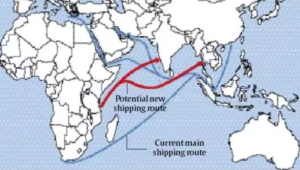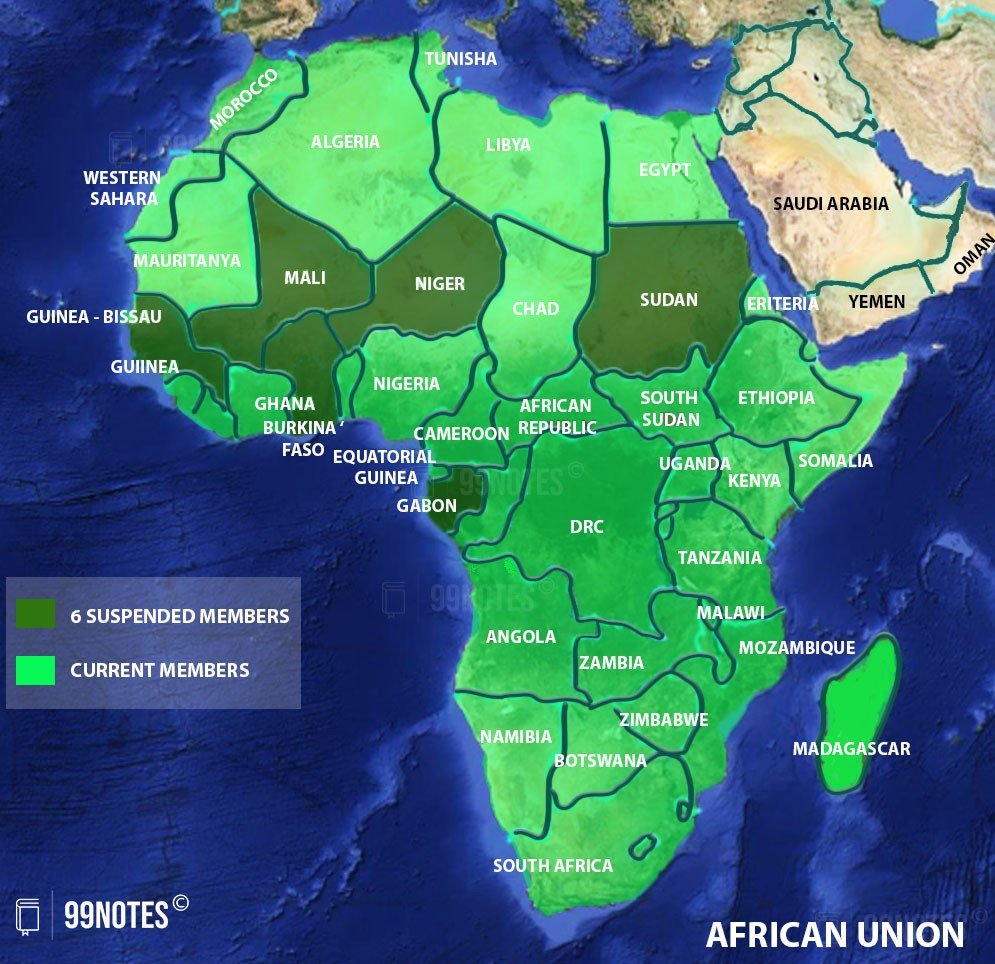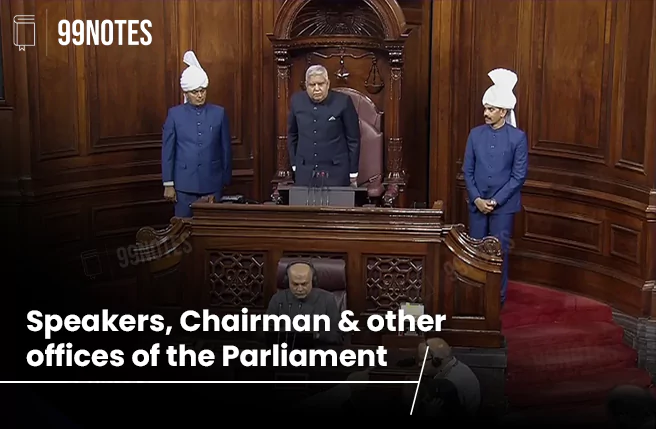African Union
The African Union is a continental body encompassing 55 African member states that make up the countries of the African Continent. It was founded in 2002 as a successor to the Organization of African Unity(OAU)(founded in 1963). The organization focuses on greater unity, defending sovereignty, increasing cooperation, stability, and development within Africa.
Note: Guinea, Burkina Faso, Sudan, Mali, Niger and Gabon were all suspended from the African Union.
Evolution of the African Union
- The heads of Independent African States (total of 32) in 1963 signed a charter creating Africa’s first post-independence continental Institution, “the Organization of African Unity (OAU)”. It was signed in Addis Ababa, Ethiopia. On 9th September 1999, the heads of state and government of the organization of African Unity announced the establishment of an “African union” with the release of the Sirte Declaration.
- In 2002, the “African Union” was officially launched in Durban, South Africa.
- Further 21 members joined the organisation in 2002 totalling 53 members. South Sudan and Morocco joined in 2011 and 2017, respectively, becoming the 54th and 55th African Union members.
Significance of the African Union:
Economic opportunities:
- Trade: The African Union is India’s fourth largest trading partner after the US, China and the United Arab Emirates. Trade of India with African countries has increased from US$ 68.5 billion in 2011-12 to US$ 90.5 billion in 2022-23.
- Investment opportunities: India’s investor have expanded their footprint in Africa, with investments worth US$ 73.9 billion between 1996 and 2022; India is now among the top five investors in Africa.
- Food security: It has been a key pillar of the India-Africa partnership and has been prominently featured since the last three India-Africa Forum Summits. (As per FAO, more than 339 million of Africa’s Population is undernourished).

- Connectivity: The Asia-Africa Growth Corridor is an economic cooperation agreement between India, Japan, and other African countries that aims for inclusive development, including infrastructure development, digital connectivity, etc.
- Aid and assistance: India has also become Africa’s second-biggest creditor after China. Projects developed under lines of credit provided by India’s Export-Import Bank have been increasing.
Geo-political considerations:
- South-South Cooperation: India and Africa share historical ties and a common experience of colonialism, making them natural partners in South-South cooperation. Their mutual understanding led to the formation of the NAM.
- To Garner support for UNSC Seat: The support of the African Union would be immensely helpful in garnering a vote for permanent membership of the UNSC as it carries the votes of 55 countries.
- Peacekeeping force: India has been a leading troop contributor to UN peacekeeping missions in African countries and supports capacity building and strengthening bilateral ties.
- India and Africa have also made significant contributions to protect the interests of several developing countries at international forums like the World Trade Organization. They moved joint proposals like the Agriculture Framework Proposal and also proposed an intellectual property right waiver for COVID-19 vaccines at the WTO.
Defence and security cooperation:
- The navies of India, Mozambique, and Tanzania conducted a joint maritime exercise, “IMT TRILAT”, in March 2024 to provide training, improve interoperability and strengthen maritime cooperation.
- India and Africa conducted the first-ever India and Africa chief conclave alongside the second edition of the Africa India field training exercise (AFINDEX) in 2023.
- India and Africa also conducted an annual India-Africa Defence Dialogue (IADD) that coincides with India’s defence Expo in 2022.
- The “Gandhinagar Declaration”, adopted as an outcome of IADD, proposes to enhance cooperation in training and military exercises.
- The horn of the African region is critical for the security of India due to rising threats, for instance, Radicalism, Piracy, and organized crime.
Energy cooperation:
- Energy Security: Africa is rich in natural resources, including oil, gas, and minerals, which are crucial for India’s energy security. Indian companies have invested in oil and gas exploration and production in countries like Nigeria, Mozambique, and Sudan. India is the single biggest purchaser of Nigerian crude oil, with Africa supplying around a quarter of India’s trade crude imports.
- International Solar Alliance provides a platform for collaboration and transfer of technology in the field of solar energy, including African countries.
- The Indian government in 2021 pledged to provide $2bn in concessional credit for solar energy projects in Africa.
- In 2022, India-based ReNew Energy Global signed an agreement to build an $8 billion green hydrogen project in Egypt. Adani Green Energy is considering a 10 GW project in Morocco.
Regional Grouping:
- India-Africa Forum Summit (IAFS): it is a major platform for India-Africa cooperation to enhance and strengthen the partnership between India and African countries.
- G21: With India’s effort, the African Union was included in G20, making it G21 after AU involvement.
- Apart from IAFS, India and South Africa also collaborate at
Developmental Cooperation:
- Line of Credit (LOCs): India has provided 181 Lines of credit to 41 African countries for a total of US$11 billion, representing 42 % of the total LOCs offered by India through EXIM Bank.
- The Indian Technical and Economic Cooperation Program provides technical assistance and professional military education training slots for African countries.
- Pan African e-Network Project was Launched in 2009, that aims to bridge the digital divide in Africa by providing tele-education, telemedicine, and diplomatic communication services.
- India has extended its expertise in agriculture to African nations through initiatives like the India-Africa Agriculture and Natural Resources Ministers’ Conference. ICAR collaborates with African institutions to enhance agricultural productivity and food security.
People-to-people ties:
- Historical Ties: India has historically enjoyed a close relationship with Africa, given the shared struggle against colonialism, the non-aligned movement and shared socio-economic and demographic challenges
- Healthcare Diplomacy: India gained goodwill across Africa during the Pandemic by donating vaccines, reinforcing its comparative advantage as the ‘pharmacy of the world’.
- India’s soft power, including its diverse culture, yoga, and traditional medicines, plays a significant role in building bridges and strengthening ties with African nations.
- India offers various scholarships like the Africa Scholarship Scheme and the ICCR (Indian Council for Cultural Relations) Scholarships enabling African students to pursue higher education in Indian universities and fostering cultural and academic exchanges.
Concerns:
- Lack of Connectivity: connectivity among the cities between India and Africa is lacking, impeding the growth of mutual understanding and cooperation.
- Incidence Racial Attack: increasing instances of violence against students from Africa in India pose serious challenges to people-to-people connections.
- Investment concerns: Indian firms may be reluctant to invest in Africa due to concerns about high levels of debt, slower economic growth, and uncertainties in some African countries’ business environments. These factors can limit India’s ability to expand its economic footprint in the continent.
- China’s presence: china’s presence has grown in African countries, lending loans to them, which has resulted in China’s growing influence in the continent.
- Strategic investments: China even built its first overseas military base in Djibouti.
- Terrorism in Africa: there has been a significant rise in terrorist attacks by extremists connected to al-Qaida and ISIS across Africa over recent years.’
PM Modi’s ten guiding principles on India-Africa ties:
In 2018, in a speech to the Ugandan parliament, Modi outlined a vision for partnership with Africa at the global level. Following are the 10 Guiding Principles articulated by PM Modi for India-Africa engagement and address to the African nations:
- Africa will be at the top of India’s priorities. India will continue to intensify and deepen its engagement with Africa.
- India’s development partnership will be guided by Africa’s priorities. India will build as much local capacity and create local opportunities as possible.
- We will keep its markets open, make it easier and more attractive to trade with India, and support our industry in investing in Africa.
- We will harness India’s experience with the digital revolution to support Africa’s development, improve the delivery of public services, extend education and health, spread digital literacy, expand financial inclusion, and mainstream the marginalized.
- Africa has 60 % of the world’s arable land but produces just 10 % of the global output. We will work with you to improve Africa’s agriculture.
- Our partnership will address the challenges of climate change.
- We will strengthen our cooperation and mutual capabilities in combating terrorism and extremism, keeping our cyberspace safe and secure, and supporting the UN in advancing and keeping peace.
- We will work with African nations to keep the oceans open and free for the benefit of all nations. The world needs cooperation and competition in the eastern shores of Africa and the eastern Indian Ocean.
- As global engagement in Africa increases, we must all work together to ensure that Africa does not once again turn into a theatre of rival ambitions but becomes a nursery for the aspirations of Africa’s youth.
- Just as India and Africa fought colonialism together, we will work together for a just, representative and democratic global order that has a voice for one-third of humanity that lives in Africa and India.
Way forward:
- Potential Market for India: The African Continental Free Trade Area (AfCFTA) will provide a unified continental market that can be tapped by Indian firms, which will lead to the increasing level of India’s engagement with Africa.
- Increase Mutual Engagement: to further strengthen the relationship, the long pending fourth India-Africa Forum Summit should be organized.
- Diversify energy supply sources: India can focus on diversifying its energy supply sources from African countries such as Nigeria, Angola, Algeria and Equatorial Guinea.
- Improve Experiences of Africans in India: Ensure the safety and well-being of Africans working or studying in India, promoting people-to-people connections.
- The AU should integrate important initiatives such as the African Continental Free Trade Area and new partnerships for African Development in the larger Africa-India Partnership.
- India and the African Union are expected to cooperate in multilateral forums like the G21 or the BRICS group, coordinating diplomatic efforts to change the structure of the UN Security Council.







